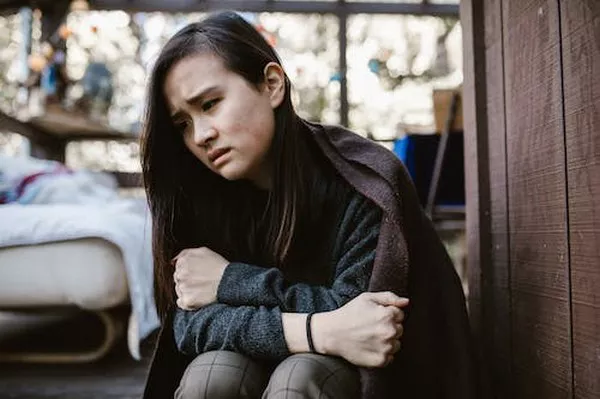Social anxiety is a common mental health condition that affects many teens, making them feel nervous and uncomfortable in social situations. This can have a significant impact on their everyday lives, making it difficult for them to make friends, participate in social activities, and even attend school. In this article, we will explore some of the causes of social anxiety in teens and provide some tips on how to manage and overcome it.
Genetic Predisposition
One of the leading causes of social anxiety in teens is a genetic predisposition. Studies have shown that anxiety disorders tend to run in families, suggesting that there is a hereditary component to this condition. Here are some ways that genetics may contribute to social anxiety:
- Inherited Traits
Some people may be born with certain personality traits or temperament that make them more prone to anxiety. For example, some teens may have a naturally cautious or shy disposition, which can make them more vulnerable to developing social anxiety.
- Brain Chemistry
Some research has suggested that changes in brain chemistry may contribute to the development of social anxiety. For example, imbalances in serotonin or dopamine levels in the brain can lead to anxiety symptoms.
- Environmental Factors
While genetics can play a role in social anxiety, environmental factors can also contribute. For example, growing up in an environment with high levels of stress or trauma can increase the risk of developing anxiety disorders.
Negative Life Experiences
Another common cause of social anxiety in teens is negative life experiences. Traumatic events, bullying, or other negative experiences can make teens feel anxious and stressed, particularly in social situations. Here are some ways that negative life experiences can contribute to social anxiety:
- Trauma
Experiencing a traumatic event, such as physical or emotional abuse, can lead to social anxiety. Trauma can make teens feel unsafe and uncomfortable in social situations, leading to avoidance behaviors.
- Bullying
Bullying can have a significant impact on a teen’s mental health, including contributing to the development of social anxiety. Teens who are bullied may feel isolated, embarrassed, and ashamed, leading to anxiety symptoms.
- Low Self-Esteem
Teens with low self-esteem may be more prone to social anxiety, as they may feel that they are not good enough or that others are judging them negatively. Low self-esteem can also make it difficult for teens to assert themselves or speak up in social situations.
Cognitive Factors
Cognitive factors, such as negative thought patterns and beliefs, can also contribute to social anxiety in teens. Here are some ways that cognitive factors can contribute:
- Fear of Negative Evaluation
Teens with social anxiety may have a fear of negative evaluation, which means they worry that others will judge them harshly or reject them in social situations. This fear can make it difficult for teens to make friends or participate in social activities.
- Catastrophic Thinking
Teens with social anxiety may engage in catastrophic thinking, imagining the worst-case scenarios in social situations. For example, they may worry that they will embarrass themselves or say something stupid in front of others, leading to negative outcomes.
- Avoidance Behaviors
Teens with social anxiety may engage in avoidance behaviors, such as skipping social events or activities. While this may provide temporary relief from anxiety, it can also reinforce negative thought patterns and make it more difficult to overcome social anxiety in the long term.
Treatment options for social anxiety in teens may include therapy, medication, or a combination of both. Cognitive-behavioral therapy (CBT) has been shown to be an effective treatment for social anxiety, as it helps teens to identify and challenge negative thought patterns and learn new coping skills. Medications such as selective serotonin reuptake inhibitors (SSRIs) may also be prescribed to help manage symptoms of anxiety.
How to deal with social anxiety in teens?
In addition to seeking professional help, there are also some things that parents and caregivers can do to support teens with social anxiety. Here are a few tips:
- Encourage social activities: While it may be tempting to let your teen avoid social situations, it’s important to encourage them to participate in social activities. Start with smaller, low-pressure events and gradually work up to more challenging situations.
- Build self-esteem: Help your teen build self-esteem by providing positive feedback, celebrating their successes, and encouraging them to pursue their interests and passions.
- Practice relaxation techniques: Encourage your teen to practice relaxation techniques such as deep breathing, meditation, or progressive muscle relaxation to help manage symptoms of anxiety.
- Provide a supportive environment: Create a supportive and non-judgmental environment at home where your teen feels comfortable talking about their feelings and experiences.
By understanding the causes of social anxiety in teens and providing support and resources, we can help teens to manage and overcome this challenging condition. Remember that social anxiety is treatable, and with the right support, your teen can learn to navigate social situations with confidence and ease.
In conclusion, social anxiety in teens can have a significant impact on their lives, making it difficult to participate in social activities and make friends. By understanding the causes of social anxiety, including genetic predisposition, negative life experiences, and cognitive factors, we can better support teens who are struggling with this condition. If you suspect that your teen may be experiencing social anxiety, it’s important to seek professional help from a mental health provider who can provide assessment, diagnosis, and treatment options.
Related Topics:





























